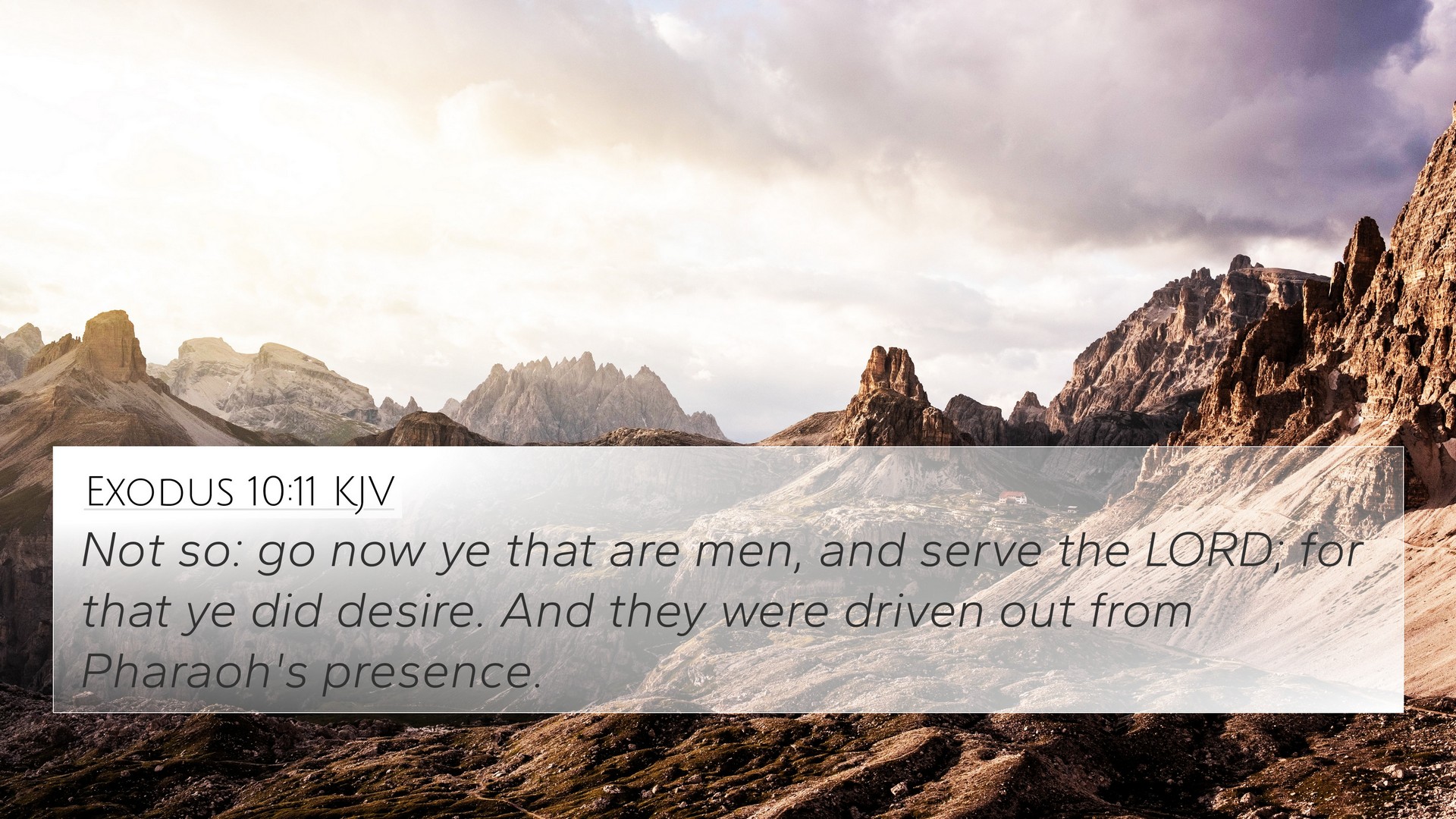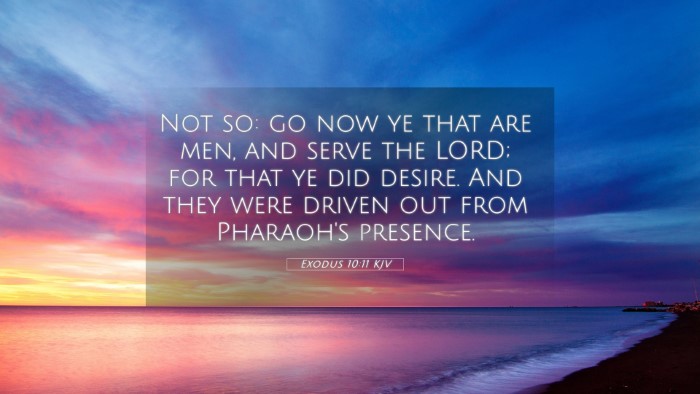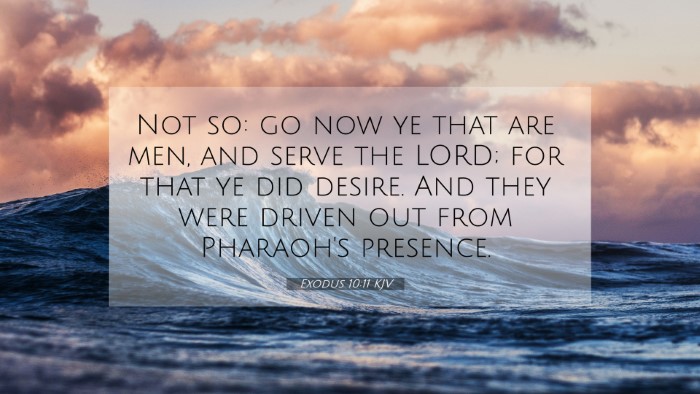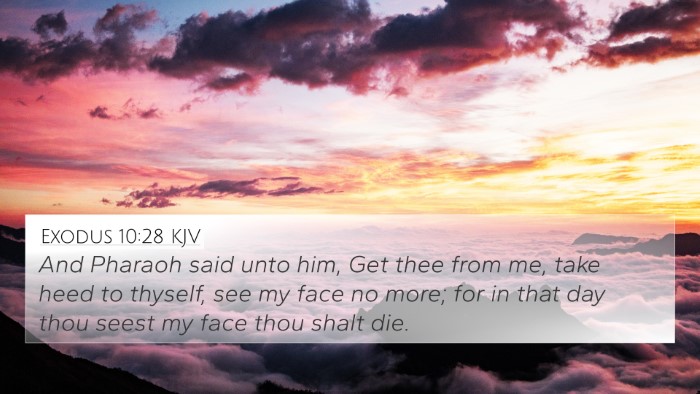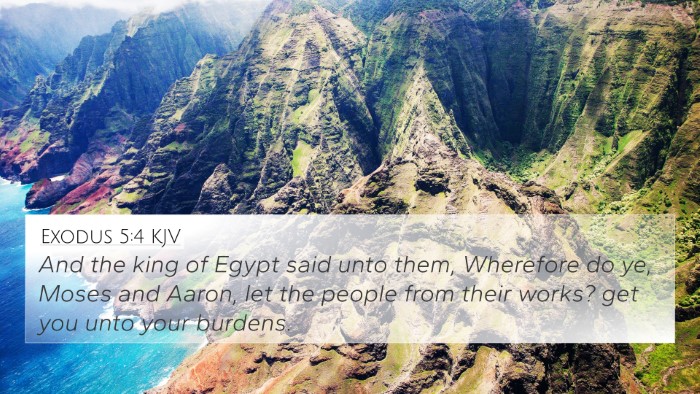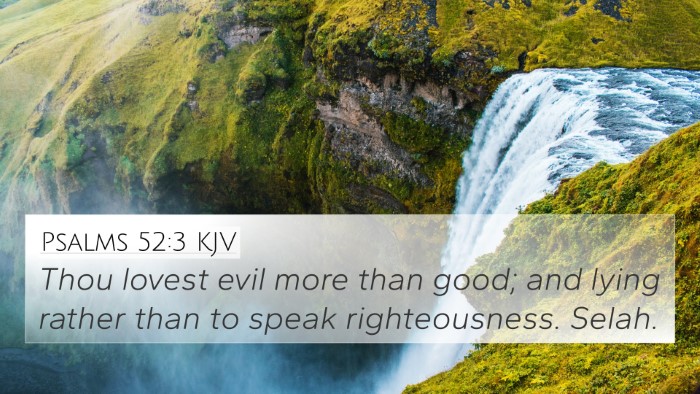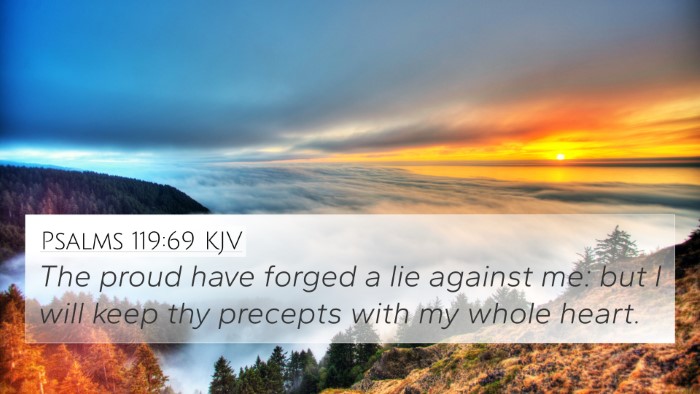Understanding Exodus 10:11
Verse Reference: Exodus 10:11 - "Not so: for we shall go with our young and with our old, with our sons and with our daughters, with our flocks and with our herds will we go; for we must hold a feast unto the LORD." (KJV)
This verse comes at a pivotal moment in the Exodus narrative, emphasizing the determination of the Israelites to worship God amidst their captivity.
Summary of Insights from Public Domain Commentaries
This exegesis combines insights from Matthew Henry, Albert Barnes, and Adam Clarke to provide a thorough interpretation of the verse and its implications.
Historical Context
Albert Barnes notes that this part of Exodus is set during the plagues that God unleashed upon Egypt to compel Pharaoh to release the Israelites from slavery. The request to leave with all their families and possessions symbolizes the totality of their commitment to God.
Matthew Henry emphasizes the significance of the “feast” mentioned in the verse. It indicates not only a need for physical freedom but a spiritual necessity to worship God collectively.
Adam Clarke draws attention to Pharaoh's previous attempts to negotiate less than full worship, reflecting the struggles between earthly power and divine command.
Thematic Elements
This passage encapsulates several key themes:
- Commitment to God: The refusal to abandon any member of their community illustrates their collective commitment to the Lord.
- God's Sovereignty: The insistence on worship highlights God's sovereignty over all aspects of life, including family and livelihood.
- Worship as Liberation: The call to hold a feast signifies that true freedom entails the ability to worship and serve God.
Cross-References for Exodus 10:11
Several Bible verses resonate with the themes expressed in Exodus 10:11:
- Exodus 3:18 - The request for Pharaoh to let the Israelites go to hold a feast signifies the importance of worship.
- Exodus 12:3 - The gathering of families to observe the Passover highlights communal worship.
- Hebrews 11:24-26 - References Moses' faith in leaving Egypt, illustrating the sentiment of liberation.
- John 4:24 - "God is a Spirit: and they that worship him must worship him in spirit and in truth," aligning with the heart of worship.
- Psalms 100:2 - Encouragement to serve the Lord with gladness parallels the sincere intent of worshipping God.
- Matthew 18:20 - Where two or three gather in Jesus' name, their collective worship holds significance.
- Romans 12:1 - Offering our bodies as living sacrifices reflects the essence of worship as committed and holistic.
Connections with Other Bible Verses
This examination of Exodus 10:11 shows how it serves as a pinnacle moment in the broader narrative of the Hebrew Scriptures and its resonance with New Testament themes:
- Connections between Exodus and Matthew: The theme of exodus from bondage parallels the liberation Jesus offers in the New Covenant.
- Linking Psalms and Exodus: Many Psalms express the longing for worship and deliverance that echoes this sentiment.
Application and Reflection
Reflecting on Exodus 10:11 encourages believers today to comprehend the importance of family and community in worship practices. Moreover, it stresses the significance of worshiping with all aspects of life, surrendering to God in mind, body, and spirit.
Tools for Further Study
To deepen understanding and identify connections, the following tools are recommended:
- Bible Concordance: To find verses that relate to specific themes or words.
- Bible Cross-Reference Guide: Useful for exploring thematic links among scriptures.
- Bible Reference Resources: Essential for cross-referencing Bible texts.
Conclusion
In conclusion, Exodus 10:11 is a profound statement about the Israelites' determination to worship God fully, embodying both a physical and spiritual liberation. Through cross-referencing other Biblical texts, we can gain deeper insights into its themes and significance within the overall narrative of Scripture.
